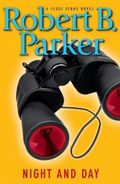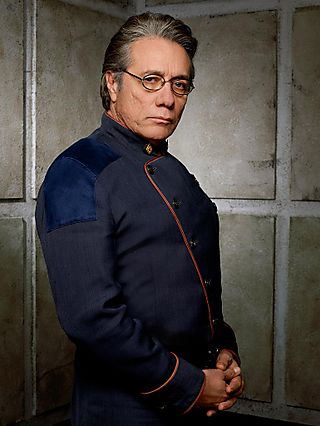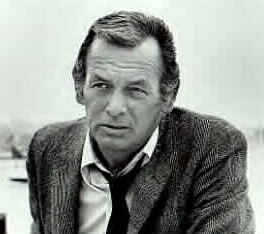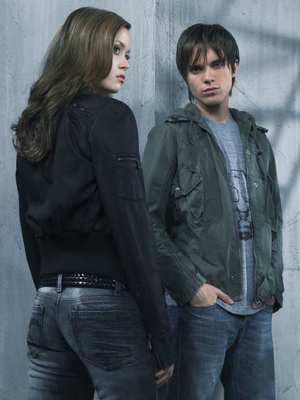Writing
Recession a boon for books?
According to the Telegraph in London, some publishers see opportunity in these dark financial times.
Publishing is not immune to tough times. This week Random House announced 5 per cent redundancies. Agents are shaking their heads over the reduced advances. Paper costs have risen. Books are being delayed from 2009 to 2010 to stretch budgets. Booksellers are cautious about almost anything without a TV tie-in. But publishers aren't, like ITV, dependent on advertisers. And readers are addicts. They will not stop reading to stare at the telly. Indeed, publishing can benefit from recession.
"At staff presentations, if people are looking gloomy," says John Makinson, chief executive of Penguin, "I tell them that the 1930s were the golden age of publishing in Britain. Many major publishing houses started then and Allen Lane, who launched paperbacks for sixpence, vastly expanded the market.
"Book sales correlate well with the market for takeaway pizzas," says Makinson. The idea – born out by industry-wide figures showing a rise in sales since this time last year – is that staying in is the new going out. Paperbacks cost less than a cinema ticket and provide many more hours of amusement.
Night and Day

NIGHT AND DAY, the new Jesse Stone novel, is so slight, you almost expect the words to evaporate from the white pages. I noticed the white because there's so much of it. I doubt there has ever been so much white space in a book before. The story is barely a sketch with a plot so thin it's practically non-existent. There isn't even a murder in the book…or a real mystery, as such. If anything, it's more of a vignette about Jesse, because the crimes, such as they are, aren't mysterious, involving, or interesting on their own. They aren't even felonies. The story doesn't even feel long or substantial enough to qualify as a novel, so think of it as a extended short story padded with lots of re-stating of information we already know and pages of rapid-fire banter, some of it clever, most of it quite familiar and tired (especially if you've read the Spenser novels). Which all leaves enough white space on the pages to write your own novel in the margins.
Mystery Money For You
The Mystery Writers of America is awarding $500 scholarships for aspiring writers to attend conferences and short-term writing programs. The details are below and you need not be an MWA member to apply for the grants:
2009 Helen McCloy/MWA Scholarship for Mystery Writing
INFORMATION: http://www.mysterywriters.org/?q=AwardsPrograms-McCloy
APPLICATION FORM: http://www.mysterywriters.org/files/2009_McCloy_application.pdf
What Is It?
The Helen McCloy/MWA Scholarship for Mystery Writing seeks to nurture talent in mystery writing—in fiction, nonfiction, playwriting, and screenwriting.
Who May Apply?
The scholarship is open to U.S. citizens or permanent residents only. Membership in Mystery Writers of America is not required to apply.
How May the Scholarship Be Used?
The scholarship may be used to offset tuition and fees for U.S. writing workshops, writing seminars, or university/college-level writing programs.
The scholarship committe would like to emphasize to potential applicants that scholarship funds may be used for short-term writing workshops, conferences, and seminars, and not solely for university/college-level writing courses.
What Is the Scholarship Amount?
MWA will present two scholarships for up to $500 each in summer/fall 2009.
What do I need to submit?
> Scholarship application form
> Copy of official description of writing workshop, seminar or class printed by the institution/sponsor of writing program
> FIVE COPIES of a mystery writing sample (e.g., 3 chapters from a novel with a synopsis,
3 short stories, 3 pieces of short nonfiction work, 1 screenplay, or 1 play script)
> Two letters of recommendation (usually from teachers who can speak to the applicant’s writing ability)
> FIVE COPIES of a short (300- to 500-word) essay on the applicant’s interest in mystery writing
The scholarship committee may also require a syllabus or other documentation from the writing program to be attended.
Submission Address:
Helen McCloy/MWA Scholarship Committee
PO Box 16319
Saint Paul MN 55116-0319
Application Deadline:
All applications must be postmarked by February 28, 2009. No late applications or emailed applications will be accepted.
Questions?
Contact the Helen McCloy/MWA Scholarship Committee at the address above or e-mail mccloy-mwa@lycos.com. No phone calls, please.
Tie-ins: The Final Frontier
Author Vonda McIntyre blogs about breaking-in as a tie-in writer with her STAR TREK novels and the snobbery she encountered.
Back in the 1980s, I wrote a bunch of Star Trek novels. I thoroughly enjoyed writing them. Pretty much the only drawback was that some of my colleagues took exception to my polluting my precious bodily fluids with evil tie-in novels. You’d’ve thought they believed they had to save my soul, blathering about the improvement in my moral character that would result if instead I took an honest job as a waitress.
But mostly she shares a lot of amusing and interesting anecdotes about her tie-in days in the post and subsequent comments. Her post sparked a debate over at Metafilter and at John Scalzi's blog. He writes, in part:
With very few exceptions, media tie-in SF outsells original SF, often by a significant amount. Now, we can argue about why this is and whether this is a good thing for the genre or not, but at the end of the day, it’s a fact and it’s something authors give serious consideration to, in terms of its value to their overall career. […]I don’t write tie-in SF for my own reasons, but it’s not to say I wouldn’t if the right project came along. I have quite a number of friends who do or have written tie-ins, and you know what, when all is said and done they’re generally getting paid well to do work they love in universes they’re fans of, for audiences who well appreciate their efforts. Maybe some people want to crap all over that and call them hacks. I heartily raise a middle finger at them.
Obviously, I agree. I read some of the comments on Scalzi's blog and at Metafilter and the argument some folks are making against tie-ins is that they are so successful that they are squeezing better, original books off the shelves. It's a disingenuous and dumb argument. The fact is if the non-tie-in is selling well, it won't be pushed off the shelf by the latest STAR TREK novel. The reason the tie-ins are on the shelf in the first place is because people are buying them. If there wasn't a voracious market for them, they wouldn't exist.
Lazy Days and Beloved Characters

I finished writing my latest MONK novel the other day and I felt like lazing around. I’ve had a lot on my mind lately and after writing a book I didn’t feel much like reading one. So I vegged out on television…some new, some old.


Watching HARRY O, ROCKFORD and THE OUTSIDER, I realized what those old shows had over those two, recent episodes of GALACTICA and TERMINATOR. Character. Keep in mind, GALACTICA and TERMINATOR are two of my favorite shows (well, they were). But, at the risk of sounding like an old coot blogging from his bungalow at the Motion Picture Home, I think that too often shows today confuse angst with character, dread with depth, misery with complexity. A character doesn’t have to be in endless spasms of self-loathing, denial, heart-break and agony to be someone worth watching or caring about. That’s cheap and easy “complexity” for a writer, it’s writing a character rather than creating one…and it’s a beating for the audience. Characters are more than the sum of their pain, anguish and loss…and their capacity for cruelty to themselves and others. It’s not superficial or weak writing to explore more subtle conflicts…and to season them with humor, compassion, vulnerability, and some joy. There are people I love very much who are going through very hard times…and yet they haven’t lost their sense of humor or their ability to find joy in their lives, even in their darkest moments. If anything, it’s that capacity for humor and joy that is seeing them through it.
Missouri Breaks
The 94th Annual Missouri Writer's Guild Conference April 3-5 in Cape Girardeau is shaping up to be a terrific weekend…and I'm not just saying that because I'm one of the lecturers. Speakers are still being added, but folks on tap include Simon & Schuster editor Kate Angelella and writer Harvey Stanbrough, who has been nominated for the National Book Award, the Pulitzer Prize, the Pushcart Prize, and just about everything else except the Booker, the Nobel, and The Oscar (but I'm sure they'll be calling him any minute now). Here's some more info from the conference organizers on the Sunday "Master Classes."
Spend the night at Drury Lodge for $85 and attend a Sunday Masters Class for $65
from 9 to noon! If you have a busy weekend, you can just come to Cape for Sunday morning and attend a master's class. These are smaller sized classes where you have intense
instruction from a writing professional. Many of these are taught in workshop
format where you will be doing some writing and learning both!
Here's the four fantastic classes we are offering:
Class Number One: Lee Goldberg's "Breaking Into TV Writing — The Crash Course."
TV writer/producer Lee Goldberg ("SeaQuest," "Monk," "Diagnosis Murder," ) will
teach you how to watch TV the way professional television writers do — how to
recognize the "franchise" of a show, the four-act structure, and the unique
conflicts that drive the weekly storytelling. These are essential skills that
are not only important in understanding TV, but also in writing the all
important spec script that will be your calling card (but many of the lessons he
teaches can also be applied to novel-writing). This three-hour seminar combines
a free-wheeling lecture and discussion with clips from television shows that
highlight the key points. You'll never watch TV the same way again after this
seminar.
Class Number Two: Harvey Stanbrough's "Writing Realistic Dialogue Workshop"
Harvey's classes are often STANDING ROOM ONLY. He's that good! This is a
discussion of the necessity and excessive use of tag lines and brief descriptive
narrative passages; the physical and abstract nuances of Implication; the use of
sentences vs. sentence fragments; the use of dialect, including truncated and/or
phonetic spellings; mechanics; and conveying emotion through dialogue.
Class Number Three: Barri Bumgarner's "Let's Write! Workshop"
Barri Bumgarner is a teacher like no other. She is enthusiastic, fun, and
encouraging. Anytime you have a chance to take a class with Barri–seize the
opportunity. This class is a session designed to inspire and get ideas
formulated, design characters, plots, and even do a bit of writing!
Class Number Four: Annette Fix's "Memoir Workshop"
Annette Fix has written a fantastic memoir, The Break-Up Diet, and this is not
easy to do. She brings her story to life through humor and also includes
universal themes. If you are writing a memoir or ever thought about writing one,
you don't want to miss this workshop.
Don't delay! Sign up today! www.mwgconference.org (We've heard rumors there's a
storytelling festival in Cape that weekend, too. So there's lots of things to
do!)
PSYCH’d again
 The cover of William Rabkin's next original PSYCH novel, "Mind Over Magic," has just been released. Alas, there are no pineapples on the cover. The book comes out in July, the same time as my next MONK, "Mr. Monk and the Dirty Cop," so maybe we'll do another signing together and beg Hansen's for another terrific cake.
The cover of William Rabkin's next original PSYCH novel, "Mind Over Magic," has just been released. Alas, there are no pineapples on the cover. The book comes out in July, the same time as my next MONK, "Mr. Monk and the Dirty Cop," so maybe we'll do another signing together and beg Hansen's for another terrific cake.
25 Writers Who Have Influenced Me
Author Raymond Benson started this meme on Facebook and it's quickly catching on. My list, of novelists and screenwriters, in no particular order is:
2. Ian Fleming
3. Robert B. Parker
4. John Irving
5. Larry McMurtry
8. Roy Huggins
9. Ross MacDonald
10. Richard Maibaum
13. Elmore Leonard
15. Ed McBain
16. E.F Wallengren
17. Michael Gleason
18. Ross H. Spencer
19. Stephen King
20. A.B. Guthrie
21. Blake Edwards
23. Norman Lear
24. Neil Simon
25. Carl Hiaasen
Of course, immediately after compiling the list, I started thinking of people I left out… like Charles Willeford, Donald Hamilton, "Franklin W. Dixon," "Carolyn Keene," the guy who wrote "Encyclopedia Brown," the guy(s) who wrote "The Three Investigators," Steven Bochco, Leslie Charteris, Levinson & Link, Robert Ludlum, James Crumley, Trevanian, and Rod Serling…but I only had 25. (Pictured: Michael Gleason and Robert B. Parker & I).
Mr. Monk est flatté
French journalist & critic Thierry Attard raves about MR. MONK IS MISERABLE in a lengthy and detailed review. He says, in part:
Mr. Monk is Miserable, his latest Monk tie-in novel, is a perfect sample of the art of this master storyteller. Should you be a fan of the Monk tv series or not, as the show itself regularly flirts with the self-conscious formulaic Tony Shalhoub one-man show. But the talent of Lee Goldberg is to build totally original novels with familiar figures. His reinventions of Adrian Monk's frustrations and anxieties are so wonderfully and joyfully crafted that many of his readers already wish an adaptation of his new Monk Book for the television series.
[…]Mr. Monk is Miserable is a wonderful and fun book with an intrigue devised like a clockwork mechanism. Lee Goldberg's vision of Paris and of the French is sharply realistic.
[…]It's a mystery story with a difference, and all the wit (there are shades of Mark Twain in Paris with Monk's exploration of the City of Light), the humor and the writing skills of a master novelist.





